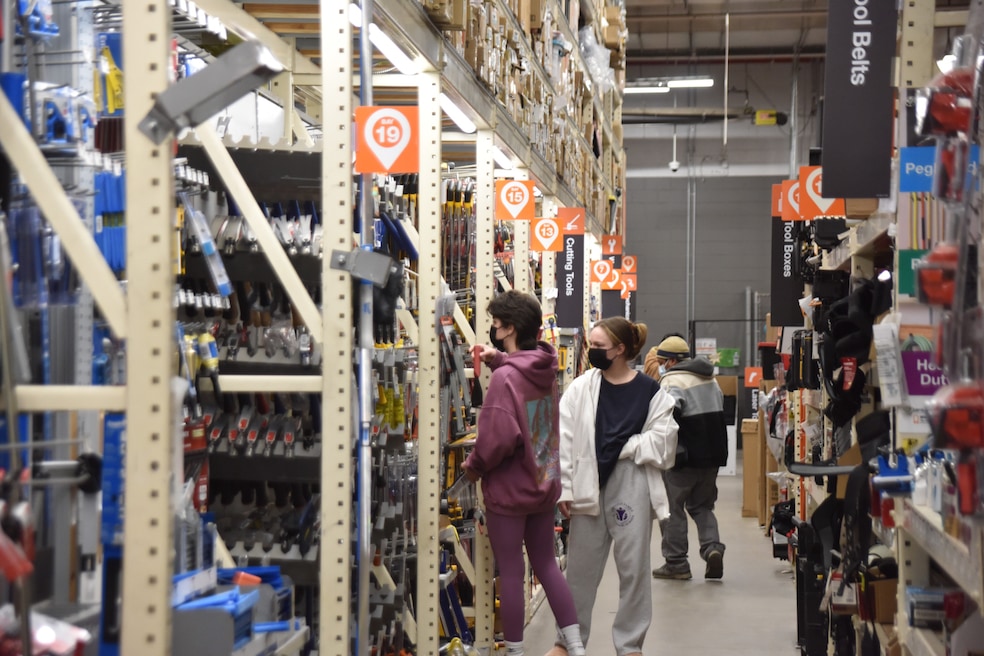Home Depot doesn’t plan to raise prices in response to tariffs, but options might narrow
Retail giant Home Depot said it doesn’t plan to raise product prices due to tariffs imposed by the Trump administration — it might just stop selling some items. In a Tuesday earnings call, the company’s executive vice president of merchandising, Billy Bastek, said the company doesn’t “see any broad-based price increases for our customers at all going forward."
Despite that, Bastek said the retailer, which sources about half its inventory from outside the U.S., might have to raise the prices on some individual items and stop selling others to accommodate tariff-related changes. On top of tariffs, the company faces slower sales that accompany a subdued housing market and sticky mortgage rates.
“There's items that we have that could potentially be impacted from a tariff that, candidly, we won't have going forward," Bastek said. "There'll be some things that don't make sense that just end up going away."
Home Depot’s commitment comes roughly a week after retailer Walmart said it would have to raise its prices to meet economic demands from the tariffs.
American households have more consumer debt than ever before
Household debt in the United States reached a record high of $18.2 trillion in the first quarter of 2025, according to the Federal Reserve Bank of New York's "Quarterly Report on Household Debt and Credit" released last week.
That consumer debt represented a $167 billion increase from the final quarter of 2024, driven largely by expanding student loan debt and mortgages — student loan balances proved most to blame, jumping by $16 billion or 4.3% over the first quarter. Credit card debt and auto loan debt both shrank over the quarter.
"As consumers pulled back on spending, credit card balances fell by 2.4% from an all-time high of $1.21 trillion to $1.18 trillion in the first quarter," according to a CoStar analysis.
That auto loan decrease was also rare, marking the second quarter-to-quarter decrease since 2011. “I think it’s a combination of people not buying [cars] because of high interest rates and high prices and also just the amount of uncertainty that we have had in the economy the last few months,” Matt Schulz, chief consumer finance analyst at LendingTree, told CNN Business.
Texas cities lose ground in tech hiring tug-of-war
The Texas cities of Austin and Houston, once touted as America’s next technology hubs, saw hiring in the sector slow in 2024, according to a report from SignalFire. The year-over-year hiring for both big firms and startups — and the often-well-paid employees they bring — dipped in both Lone Star State cities, driven by “lagging infrastructure, a cultural mismatch, fluctuating housing costs, and a renewed emphasis on hybrid [return-to-office] policies" that are motivating "startup employees to live closer to traditional hubs," the report said.
Silicon Valley and New York City, on the other hand, saw tech hiring expand, although San Diego did see its startup hiring dip. Miami, with its low taxes and warm weather, proved another winner, touting a 12% expansion in roles for artificial intelligence, the report found.

